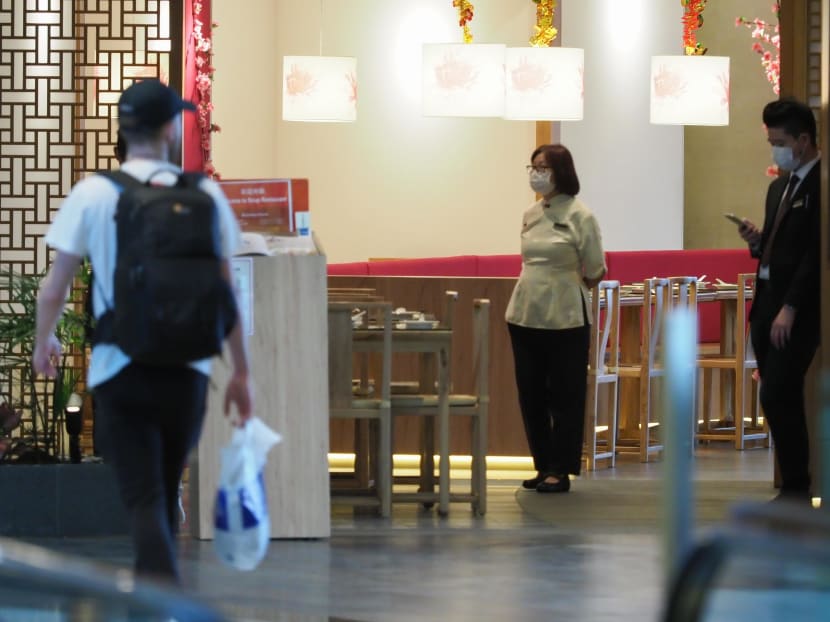MPs suggest pausing CPF contributions, raising cleaners’ pay, reviewing food security
SINGAPORE — Cleaners could get more pay and the Government may want to consider a short-term stoppage for contributions to the Central Provident Fund (CPF).

Ms Foo Mee Har, MP for West Coast Group Representation Constituency, said that food-delivery companies should adjust their commission rates, so that food outlets may have a fighting chance to survive.
SINGAPORE — Cleaners could get more pay and the Government may want to consider a short-term stoppage for contributions to the Central Provident Fund (CPF).
These are some of the suggestions raised by Members of Parliament (MPs) to buffer support for people and businesses affected by the Covid-19 pandemic.
The MPs largely welcomed the raft of support measures announced by Deputy Prime Minister Heng Swee Keat in the Solidarity Budget delivered on Monday (April 6) as well as the Resilience Budget announced on March 26, but in Parliament, they also raised a variety of concerns and gaps in aid given.
A total of 29 MPs and political office holders spoke over six hours on Monday and they also gave feedback on what they had gathered of the measures unveiled in the second and third stimulus packages to help businesses, workers and households cope with the crisis.
Mr Heng, who is also Finance Minister, had announced these special packages amounting to S$48 billion for the Resilience Budget and S$5.1 billion for the Solidarity Budget. The Solidarity Budget will need an extra drawdown of S$4 billion from the national reserves.
TODAY summarises the various views and suggestions raised by the MPs.
CPF CONTRIBUTIONS
Mr Lim Wee Kiak, MP for Sembawang GRC, said that while he understands the importance of contributions to the national savings scheme that is the Central Provident Fund (CPF), he suggested stopping it for the next three to six months to reduce the manpower cost of employers and to increase the monthly take-home pay of salaried workers.
He also suggested stopping the mandatory MediSave contributions of self-employed persons, including taxi drivers.
“Together with the enhanced Job Support Scheme, this will further cushion employers from manpower cost. For the employees and self-employed persons, it will ease their cash flow,” he said.
Under the Job Support Scheme announced in February’s Budget, the Government provides a wage subsidy to employers in certain industries to help them retain workers who are Singapore citizens and permanent residents.
On Monday, this was enhanced such that businesses in all industries will have 75 per cent of their resident employees’ wages subsidised for the month of April.
INCREASED PAY FOR ‘REAL HEROES’
Mr Ong Teng Koon, MP for Marsiling Yew Tee GRC, said that this pandemic has shown that doctors, nurses, pharmacists, teachers, caregivers, utility workers, cleaners, delivery workers are the “real heroes”.
“Perhaps it is time we think of how to reward and incentivise the real heroes with their true worth, instead of what companies say they are worth,” he said.
HIGHER FOOD PRODUCTION
Mr Murali Pillai, MP for Bukit Batok, said that to tackle the issue of food security, the Government should consider setting aside more land (1 per cent) for agriculture as part of its "30-by-30" vision, where Singapore aims to produce 30 per cent of its population’s nutritional needs by 2030. Presently, more than 90 per cent of Singapore’s food supply is imported.
He said that for this to be successful, however, Singaporeans must support agricultural companies here and accept the higher costs associated with storing food supplies.
Mr Saktiandi Supaat, MP for Bishan-Toa Payoh GRC, proposed that instead of 30 per cent, Singapore should aim to produce 50 per cent or more of “our nutritional needs” by 2030, up from less than 10 per cent today.
He said that while we have in place a “robust, multi-pronged strategy”, protectionist measures by other governments during this crisis could provoke food shortages, which is why it is important for Singapore to have its own stable supply of food.








